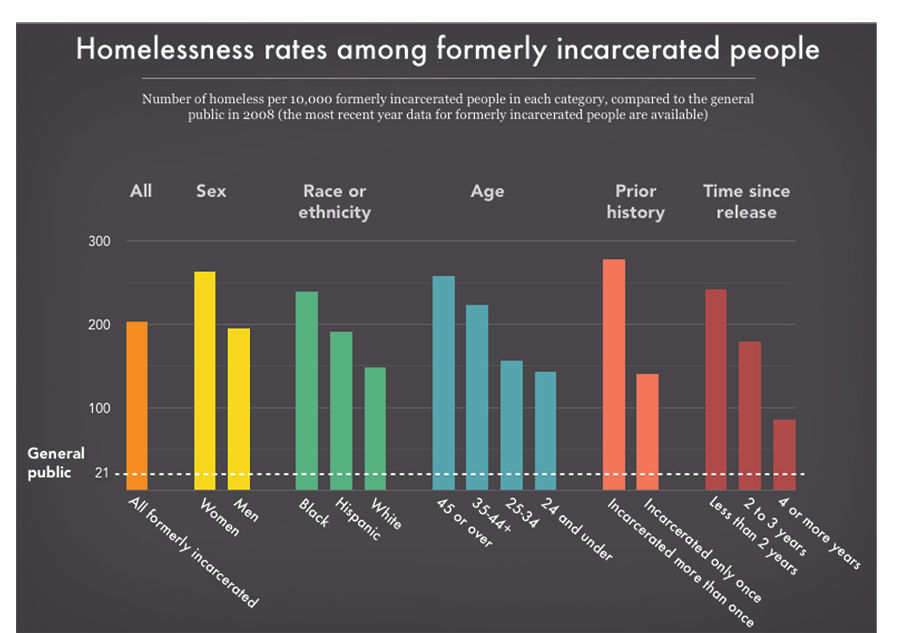You Can Never Go Home Again: The Prevalence of Homelessness Among Felons
- T's 4 Hope
- Jul 26, 2020
- 2 min read
Ava Framm
It is a well known fact that convicted felons have a difficult time finding a job after their release because there is an unspoken stigma that once a person has been convicted of a crime and served jail time, they can no longer be trusted in society. There are certain jobs they can never qualify for, they are not allowed to vote, and some struggle with being trusted again by their families. But what is not as well known is the fact that formerly incarcerated people are ten times more likely to be homeless than any other sect of the American population. This begs the question: Why are felons treated so poorly?
Most people will say that it is due to the crimes they were convicted of; people that serve a significant amount of jail time for a felony are convicted of crimes such as murder, rape, and arson. None of these crimes should be taken lightly, but the fact of the matter is that just because someone has been convicted of a crime does not make them any less human. The chart below is the most recent data concerning this issue and is much more powerful than words on paper.

The Prison Policy Initiative (who compiled the data above) state that there are currently 5 million formerly incarcerated people living in the United States. With a population of 331 million, that means around 1.51% of the US population have been in jail. The homeless population accounts for about 2% of the total US population (552,830), but 0.2% of the homeless population are formerly incarcerated people. While those percentages seem small, they represent hundreds of thousands of people who cannot lead the “normal” life of having a job, having a home, and having a steady income.
As the chart above highlights, women (especially women of color) are more likely to be homeless than men, and people who have been incarcerated more than once are almost 2x more likely to be homeless. Furthermore, those who are already homeless are more likely to be arrested while on the streets because homelessness is considered a crime. None of this is new or shocking information, and yet nothing has been done to change the system. There are several small steps that can be taken to lighten the load of homeless felons, and it starts with removing the portion of a job application in which it asks if the person has been convicted of a crime. Anywhere from 2-10% of people in prisons have been falsely accused, and the false accusation haunts them for the rest of their lives. They are harshly judged and mistrusted, and it is due to the corruption in the justice system. By enacting change, we can end the stigma on not only formerly incarcerated people, but homeless people as well.








































Comments